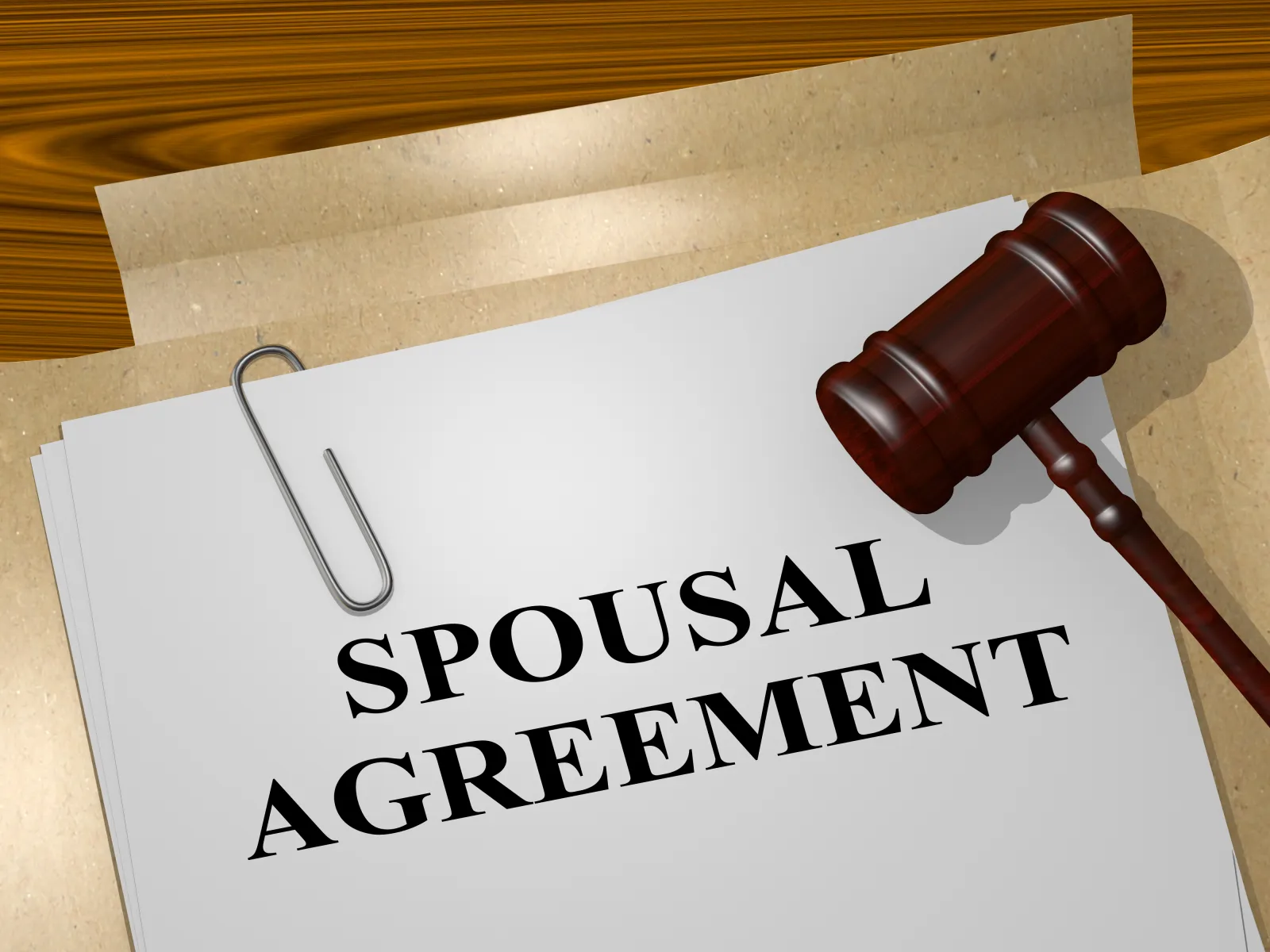Property Division in a Georgia Divorce
Georgia is an Equitable Division State
Navigating the divorce and division of assets is often the most complex and emotionally charged part of ending a marriage. In Georgia, the process is governed by the law of "equitable division." Understanding this concept is the first step toward protecting your financial future.
Unlike community property states, Georgia law does not require a simple 50/50 split of assets. Instead, "equitable" means fair, which is determined by a judge based on the specific circumstances of your case. Our experienced property division attorneys can help you understand your rights and advocate for a settlement that is truly fair to you. This guide will walk you through the key steps, from identifying marital property to understanding the factors that influence the final decision.

How Are Assets Divided in a Georgia Divorce? The Principle of Equitable Division
Some of the factors a court will analyze include:
The financial status and earning capacity of each spouse.
The conduct of the parties, especially if one spouse's actions depleted marital assets.
Each spouse's contributions to the marriage, including non-financial contributions like homemaking.
The future needs of each spouse.
This nuanced approach makes it vital to have skilled legal representation to present your case effectively. Learn more about the factors for dividing the marital estate.
Useful Guidance on Asset Division Laws in Georgia
With a huge library of resources that covers every aspect of child custody from start to finish...
Steps to Dividing Assets in a Divorce

Determine All Assets & Liabilities
The first step in dividing your assets and liabilities (debts) is to develop a complete list of everything you own. At this stage, you are not worried about whether the asset is marital, and subject to division or separate property that is not subject to division. The primary objective is to develop a complete list of all assets and debts. Your list should include everything from real estate owned to various bank accounts. It should also have everything from your personal property items to business ownership interest.
Key Items to Inventory
Common Assets:
Real Estate (marital home, vacation properties, rental properties)
Bank Accounts (checking, savings, money market)
Vehicles (cars, boats, RVs)
Retirement Accounts (401k, IRA, pensions)
Investments (stocks, bonds, mutual funds)
Business Ownership Interests
Personal Property (jewelry, art, furniture)
Common Liabilities:
Mortgages and Home Equity Lines of Credit (HELOCs)
Car Loans
Credit Card Debt
Student Loans
Personal Loans

Evaluate each Asset to Determine Whether They are Marital or Separate Property
Only property and debts acquired during the marriage is subject to equitable division. Assets acquired before the marriage or during the marriage by gift or inheritance, are generally considered separate property and not subject to division during a divorce.
Understanding the Difference
Examples of Marital Property (Usually Subject to Division):
The portion of a 401(k) or pension that grew during the marriage.
A house purchased by the couple after their wedding.
Income earned by either spouse during the marriage.
A car purchased during the marriage, even if it's only in one person's name.
Examples of Separate Property (Usually Not Subject to Division):
An inheritance received by one spouse and kept in a separate account.
A rental property owned by one spouse before the marriage.
A gift from a third party given specifically to one spouse.

Review Each Item of Separate Property to Determine if Certain Actions Made it Marital
Although an asset may be considered separate property, the parties' actions throughout the marriage can switch its characterization from separate property to marital property. In particular, you are looking for commingling of property or non-economic contributions that convert, at least part, of the separate property into marital property.
What to Look For (Commingling)
Examples of How Separate Property Can Become Marital:
Depositing inheritance money into a joint checking account where it mixes with marital funds.
Using pre-marital savings to pay for joint marital expenses or a down payment on a marital home.
Adding a spouse's name to the deed of a house that was owned before the marriage.
When the non-owner spouse contributes significantly to the maintenance or appreciation of a separate asset (e.g., managing a separate rental property).

Divide the Assets in Accordance with Georgia's Factors for Division of Marital Property
Once it has been determined what is and is not marital property, Georgia law uses several factors to make the ultimate determination as to how best to allocate various assets and liabilities between the parties.
Key Factors Guiding the Final Division
Who gets what? The court considers:
The needs of the parent who will have primary physical custody of the children (e.g., awarding them the marital home).
The liquidity of assets (balancing cash accounts for one spouse with a retirement account for another).
The tax consequences of dividing certain assets.
Any evidence of a spouse hiding or dissipating assets.
The desire to keep a family business intact, potentially awarding it to one spouse while compensating the other with different assets.

The M&T Difference for Property Division Case
When it comes to asset division, you want Meriwether & Tharp in your corner. We have developed our own proprietary marital balance sheet that helps to identify all assets and supporting evidence needed and recommends which assets you should target as part of a divorce. We hold routine training seminars with our attorneys to improve their understanding and skills regarding various assets, cash flow, and valuation methods. Perhaps, more importantly, we put that training to the test with practice negotiations and hearings to maximize our clients' results.
Division of Specific Assets
Marital House
For many going through a Georgia divorce, the marital home is their largest asset. Whether the marital home should be retained and by whom is often a significant issue. What happens to the family home will ultimately depend on the facts of each case. If the spouses agree on what will happen to the marital home and other real property, the court will likely approve such a settlement agreement. However, if the couple cannot agree, the court will decide the issue. If you are considering divorce or are currently going through a divorce, there are several options and special clauses to consider.
Debts
Not only must marital property and assets be divided upon divorce, but marital debts must also be divided. A debt usually is deemed marital when both spouses have agreed to repay the loan or credit card. However, only one party has signed for a debt is not controlling on who may bear the ultimate responsibility to pay for it as part of the divorce.
Cars
As part of a divorce, typically, each party keeps the car they are driving and is responsible for all debts, maintenance, repairs, insurance, and other expenses related to their vehicle. That said, a court does NOT have to divide cars in that manner and may consider each vehicle's relative net value and the relative maintenance costs associated with each car in making a final determination about who should get which vehicle(s).
Retirement Assets (401k, IRA, etc.)
After the family home, retirement assets are usually the second-largest asset for most families. Retirement assets include persons, 401(k) plans (and their equivalents), Individual Retirement Accounts (IRAs), and several others. When dividing these accounts, courts are NOT required, and often don't, separate them based merely upon who earned the various accounts. Instead, they are usually divided in a fair manner as part of the larger, overall estate.
Pets
Although, for many, pets are just another family member, Georgia law does not exactly see it the same way. Instead of treating dogs like a custody battle, Georgia law considers pets personal property to be divided.
Business
Although it may not be readily apparent to most, businesses, just like real property or investment accounts, are assets that may be subject to equitable division upon divorce in Georgia. See Miller v. Miller, 288 Ga. 274 (2010). Georgia case law makes it quite clear that a business, similar to other forms of property, may be divided upon divorce if deemed marital property, or they may be exempt from the equitable division process if they are considered separate property.
Taxes
Tax concerns surround various aspects of equitable division. Should you be concerned about tax effects in regards to the transfers of property incident to divorce? When do you file a joint return with your spouse? Should you be using the innocent spouse rule as a defense to previously owed taxes? Things you should know before you move forward with your divorce.
Bankruptcy
Asset Division is NOT Modifiable!
Unlike Child Support and Alimony that can be re-evaluated over time as the circumstances change between the parties, once assets are divided the agreed upon division is generally not subject to further review by the court. As such, it is critical to make sure your settlement agreement, which ultimately is the court document which documents your asset division, is done exactly the way you intended.
Frequently Asked Questions About Property Division in Georgia
Q What is the difference between marital and separate property?
Marital property is anything acquired or earned by either spouse from the date of marriage to the date of divorce. This includes income, houses, cars, and retirement fund growth. Separate property is anything owned by a spouse before the marriage, or property received during the marriage as a specific gift or inheritance, provided it was kept separate and not commingled with marital assets.
Q Is Georgia a 50/50 state for divorce?
No. Georgia is an "equitable division" state, not a "community property" (50/50) state. A judge's goal is to divide the marital property fairly, which may or may not be an equal 50/50 split. The final division depends on many factors, including the length of the marriage, each spouse's financial condition, and their contributions to the family.
Q How is debt divided in a Georgia divorce?
Debts are treated just like assets. Marital debts—those incurred during the marriage for a joint purpose, like a mortgage, car loan, or shared credit card—are divided equitably between the spouses. A court will assign responsibility for each debt as part of the final divorce decree.
Q What happens to the house in a divorce?
There are three common outcomes for the marital home. 1) One spouse can "buy out" the other's equity and keep the house, usually by refinancing the mortgage. 2) The couple can sell the house and split the proceeds. 3) In some cases, a judge may order a "deferred sale," allowing the custodial parent to remain in the home with the children for a set period, after which it is sold.
Q Can my spouse hide assets from me?
While a spouse may attempt to hide assets, it is illegal and there are legal tools to uncover them. Through the formal "discovery" process, our attorneys can subpoena bank records, credit card statements, and business documents. We can also hire forensic accountants to trace money and identify inconsistencies, ensuring all assets are on the table for a fair division.

 Download our Asset Division Guide
Download our Asset Division Guide 






